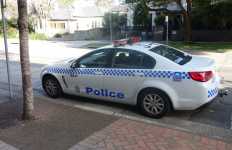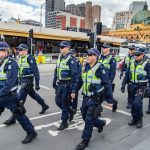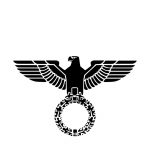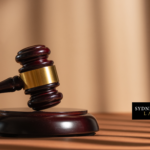Senator says: “All Cops Are Bastards”

Senator David Leyonhjelm has faced criticism for telling the media on Tuesday that:
“There is a saying amongst [soccer fans] that all cops are bastards. The cops have earned that label, they have to un-earn it.”
The comments have outraged the head of the NSW Police Association, Scott Weber, who has labelled them ‘appalling’ and ‘an outrage’, and called for Leyonhjelm to be sacked from the parliamentary committee into law enforcement.
Radio show host Ray Hadley has also come to the defence of police, calling Leyonhjelm a ‘dimwit’ and ‘captain of the dills in the senate’.
But Leyonhjelm has stood by his remarks, recently Tweeting:
“My advice to Ray Hadley and anyone concerned about being called a bastard, including coppers, is don’t be a bastard.”
The Background
Last September, reports emerged about police intending to prohibit soccer fans from engaging in certain types of conduct, including:
- Marching together,
- Chanting,
- Flying flags and banners,
- Standing on seats,
- Clapping with their hands above their heads, and
- Jumping up and down.
Concerns were raised that that the proposed bans:
- had no legal basis,
- were unduly restrictive,
- would lead to clashes and the unfair targeting of fans, and
- would have a negative impact on the general atmosphere at A-League soccer matches.
Those concerns sparked a senate inquiry into the conduct of police towards fans of A-League soccer clubs, especially the Western Sydney Wanderers.
Mr Leyonhjelm is the head of that inquiry – which is titled the “Personal Choice and Community Impacts Inquiry”, or the “Nanny State Inquiry” for short.
The Context
Leyonhjelm made the comments shortly after the inquiry heard that police recently subjected Wanderers fans to heavy-handed treatment, including arbitrarily using ‘capsicum spray’ on groups of supporters.
He pointed out that:
“Some of the behaviour that [police] disapprove of and that they try to prevent is not even illegal; standing on seats, chanting, waving flags. Yet they’re trying to impose particular values on people. I don’t think that’s legitimate for the police.”
He also pointed out that police are public servants, and that “they should remember that.”
Police Powers at Sporting Events
While the conduct that police seek to prohibit is not illegal, the Law Enforcement Powers and Responsibilities Act 2002 (‘the LEPRA’) gives police in NSW broad powers to restrict conduct in public places in ‘emergency situations’.
Section 3 of the LEPRA defines a public place as a place, or part of a place, that is open to the public. The definition includes sporting stadiums.
Section 87D gives police ‘special powers’ to prevent or control public disorders if police:
- Have reasonable grounds for believing that there is a large-scale public disorder occurring, or that there is a threat that it will occur in the near future, and
- Are satisfied that the special powers are reasonably necessary to prevent or control the public disorder.
Under sections 87I to 87MA, these ‘special powers’ allow police to:
- Establish a cordon or road block,
- Stop and search vehicles,
- Search people,
- Obtain disclosure of identity,
- Seize and detain things, and
- Disperse groups.
They do not, however, refer to the types of conduct that police propose to prohibit, and it is difficult to see where police claim to have the power to enforce most of the bans (except, perhaps, marching together), or the legal basis for the blanket imposition of such rules without evidence of a ‘large scale public disorder’.
Perhaps the solution might be to persuade the Football Federation of Australia to impose the prohibitions upon spectators that arrive at the sporting venue.
Football Federation Rules
The Football Federation of Australia has a ’Spectator Code of Behaviour’ which prohibits a range of conduct, including:
- Using violence in any form,
- Engaging in discrimination, harassment or abuse in any form including using obscene or offensive language or gestures,
- Inciting hatred or violence or engage in racist chanting, and
- Using flares, missiles, dangerous articles and items that have the potential to cause injury or public nuisance.
The document states that:
“Any person who does not comply with this Spectator Code of Behaviour or who otherwise causes a disturbance may be evicted from a venue and banned from attending future Matches”.
The Code does not, however, specifically refer to the types of conduct that police propose to ban.
The Outcome
With Senator Leyonhjelm standing by his comments, and the legality of the proposed bans on shaky legal ground, it will be interesting to see how the saga plays out over the coming weeks.






